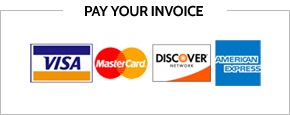Trade Secret Misappropriation: Why It’s a Big Deal, and What Not to Do When Leaving an Employer

When you work for a company, you learn all sorts of private information. Most of this information is not subject to copyright, patent, or trademark protection. That does not mean that labeling information as “confidential” carries no actual legal protection. Confidential information may be protected as a “trade secret” of the employer, and if you misappropriate those trade secrets, you could find yourself liable for significant damages. Continue reading below for a discussion of trade secret misappropriation and protecting confidential corporate information. Reach out to an employment contract and separation agreement lawyer with any questions or for help with an employment-related matter.
What is a Trade Secret?
A trade secret is a form of intellectual property. Unlike copyrights or patents, trade secrets are not registered with the government and are not shared with the public (at least until it’s time to utilize the information in a public manner). Trade secrets are confidential pieces of information generated by a company, often taking the form of a formula, pattern, program, method, technique, or process.
A trade secret might be technical information such as an engineering notebook, a manufacturing technique, computer code or software, or business information such as cost and pricing information, financial projections, or marketing and advertising plans. The key factors of a trade secret are that (a) it has value, giving a competitive advantage to the owner, and (b) reasonable efforts are made by the owner to keep it secret.
What is Trade Secret Misappropriation?
Trade secret misappropriation is the improper dissemination of trade secrets without the consent of the owner. Misappropriation can take one of two forms: (1) Acquiring the trade secret through improper means (such as by hacking into a company’s systems, breaking into the office to steal documents, breaching a contractual duty to keep something confidential, or inducing others to breach that duty); or (2) disclosing a trade secret with reason to believe the person who gave you the information was acting improperly.
Employees who learn confidential information and then leave to work for a competitor are at high risk of committing trade secret misappropriation. If an employee learns confidential market information or financial projections, for example, and then shares that information with a new employer, they might be guilty of trade secret misappropriation. If the new company uses that information, knowing (or having reason to know) that the new employee betrayed a duty of confidentiality by sharing a trade secret, the new employer may also have committed trade secret misappropriation.
Remedies for Trade Secret Misappropriation
If your employer catches you misappropriating their trade secrets, they can file a legal claim against you. They can seek injunctive relief to stop anyone from using or publishing the trade secret, and they can seek financial compensation for any economic harm caused by your misappropriation as well as for any profits you derived. They can even seek royalties for use of the information in lieu of proving loss. If a court finds you acted maliciously, you could face punitive damages. A prevailing plaintiff can also recover their attorneys’ fees if the defendant acted willfully or maliciously.
How to Avoid Trade Secret Misappropriation Upon Leaving a Company
If you are leaving a place of business, make sure you are not taking any confidential information with you. Leave all documentation behind. If you developed a formula, process, invention, or anything else at your current company, make sure that anything you plan to use after leaving is not subject to a confidentiality agreement. Many companies require employees to sign away their rights to anything developed during the course of their employment; even though you invented it, compiled the information, or generated the data, it does not necessarily belong to you.
As a matter of practice, don’t use any information that might be considered private in your new business. You can, of course, use the skills and general knowledge you developed at your last workplace, as well as any information that has become public, but you can’t use any confidential information you acquired or generated.
If you are a San Francisco employee or employer in need of advice or representation concerning trade secret misappropriation, non-compete agreements, retaliation, whistleblower protections, workplace discrimination, or other California labor law issues, contact the Richard Koss Bay Area employment law attorneys at 650-722-7046 on the San Francisco Peninsula, or 925-757-1700 in the East Bay.


